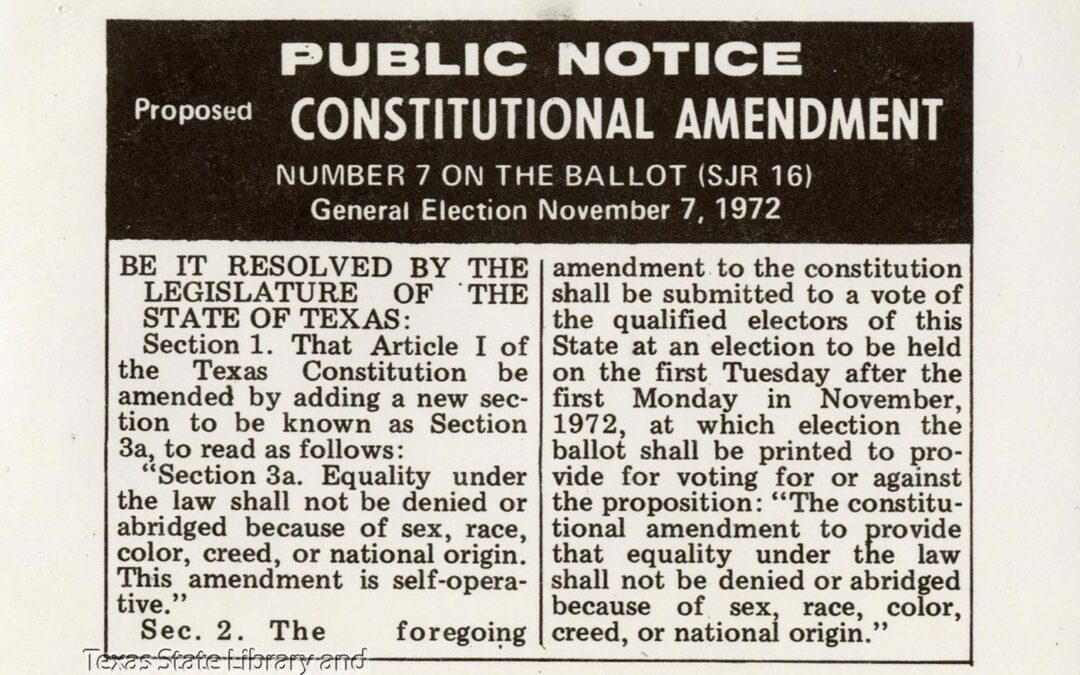Image from the Texas State Library and Archives Commission
In 1972, more than fifty years after the passage of the 19th Amendment, Texas voters approved an amendment to the state constitution granting equality under the law for all Texans, regardless of sex, race, color, creed or national origin.
The genesis of the Texas Equal Rights Amendment dates back to the late 1950s, when Dallas lawyer and civil rights activist Hermine Tobolowsky testified in front of the state legislature in championship of new legislation that would allow married women in Texas to control their own property, independently of their husbands. Her efforts grew into a larger movement to secure an amendment guaranteeing legal equality for women and minorities, thus leading to the Texas ERA’s adoption more than a decade later.
Over the course of multiple legislative sessions, Hermine and other advocates of the amendment, such as Texas House of Representative members Frances “Sissy” Farenthold and Barbara Jordan, were unwavering in their championship, lobbying lawmakers, organizations, and voters around the state to raise the proposed amendment’s profile and marshal support.
An early opponent of the amendment was the Texas Bar Association, which took the stance that discrimination against women was best addressed through individual statues, not constitutional amendments. Although Sissy Farenthold dutifully supported this position when she first took office (she was a member of the bar), she later shifted her position and became one of the leaders in the campaign to ratify the federal Equal Rights Amendment, particularly in her capacity as the first chair of the National Women’s Political Caucus.
To date, Texas is one of fewer than 30 U.S. states to guarantee equal rights regardless of gender. The Texas Legislature was also among the states that ratified the federal ERA, voting “yes” the same year that the state amendment was adopted. Sadly, the federal ERA failed to gain the requisite 38-state approval, and to date (2020) remains one of only five unratified constitutional amendments.
Additional Learning: “Letter from Rep. Martha Griffiths to Rep. Farenthold, Concerning the Equal Rights Amendment”

